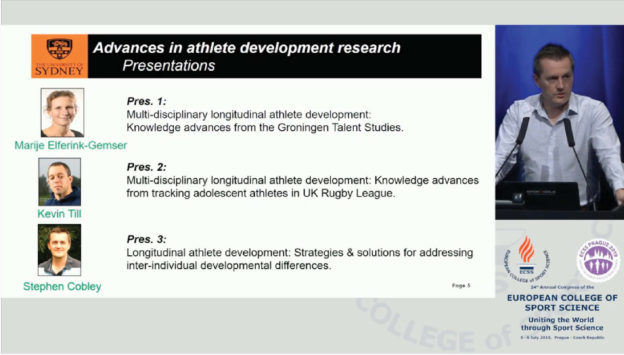
ABSTRACT: If we look under the surface of elite sport, we know that every elite athlete was once a child and has gone a long way before reaching the top. What characterized their successful development towards expertise? The prediction of long-term success is extremely difficult and the later successful athletes are not necessarily the ones who performed best in youth competitions. The reason for this is that many factors play a role; factors related to both the athlete (i.e., rate of learning, training, and maturation of anthropometric, physiological, technical, tactical, and psychological skills) and the environment (i.e., opportunities created by parents, trainers, coaches, talent development program, and the competition structure) along with a component of chance.
The Groningen Sports Talent Model gives direction for studying those factors related to the acquisition and maintenance of expertise in three steps:
1. Defining expertise
2. Studying (the development of) performance and performance characteristics
3. The choice of appropriate study methods and statistical analyses (Elferink-Gemser et al., 2018).
In the last decade, over one thousand talented athletes in a variety of sports (e.g., soccer, field hockey players, basketball, volleyball, artistic gymnastics, tennis, cycling, swimming, and speed skating), have been followed throughout adolescence in the Groningen Sports Talent Studies. Multidisciplinary longitudinal athlete monitoring with measures of anthropometry, physiological, technical, tactical and psychological characteristics reveal that to reach expertise, athletes have their own unique development patterns. Still, future successful athletes also have much in common, i.e., their capability to, derive more from the same number of practice hours than less successful athletes. As a consequence, they are better able to constantly improve their performance. They are known to take responsibility for the progress they make and score higher on aspects of self-regulation of learning, such as reflection and effort. Although self-regulation may be considered as a general characteristic of an athlete, which can be applied across domains, the mechanism itself is highly context-specific. In the presentation, this mechanism of self-regulation of learning and its value for reaching expertise will be explained as well as how trainers and coaches can use this information in their training sessions.
